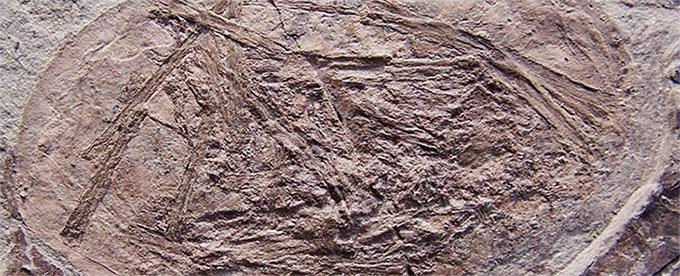The strange ancient species can fly right from birth?
Nearly 200 million years ago, the Earth's sky was a creature's house unlike anything seen today, once it was born it could fly.
A new look on the pterodacty fossil embryo has shown remarkable points. Discovered in China, embryos of these unborn creatures are thought to have poorly developed wings, and this has convinced some scientists that pterodactyl young birds need parental care. They before the wings develop.

Researchers have found fossils of an organism capable of flying right after birth.
Palaeobi researcher David Unwin and zoologist Charles Deeming recently rejected this hypothesis.
"We think this bird is capable of flying right after hatching and probably does not need the care of its parents , " the authors write.
While previous studies of pterodactyls tend to rely only on qualitative assertions, the new study uses multiple lines of evidence to show that some eggs and embryos should be reassigned to the previous stages.
Examining the limb length, egg size and egg shape of all known embryos so far - including Chinese fossil buffers containing hundreds of eggs - researchers compared the development. of them with modern birds and crocodiles.
Among the findings, the researchers identified examples of pterodactyl with early and mid-stage embryos, as well as late-stage embryos, which died just before they hatched.
Once they are included in these categories, the team examined the different stages of bone formation, or fossils, in nine different pterodactyl species.
In particular, there is a striking bone number IV . This is what we call human ring finger and it's called "wing finger" in birds and pterodactyl. As one of the last hardened bones, it is an important "development marker" .
The authors suggest that the initial and prolonged development of these bones shows that "unique components were present at the earliest stage of bone formation and acted as a precursor to the surgery. the end of prenatal development '.
However, not everyone agrees on this view. While some people are convinced by the argument, others have called this new hypothesis an extension, or there are important things with some specific details.
- Detecting ancient whale fossils with strange shapes
- The strange skull of ancient apes reveals the secret of how the primates' brains grow
- Uncover the mystery of childbirth in the old palace ban
- More and more people choose to have a caesarean section and this is causing a strange 'evolutionary' effect.
- New discovery of the ancient giant crocodile hunting dinosaurs
- Seven species of strange cats were discovered in the rainforest
- Discover fossils of strange ancient deer
- Discover common ancestors of modern people and extinct people
- Ancient tombs of thousands of years carry the form of 'dead boat'
- Bunch of strange ancient tomb images on Hanoi city wall
- History of ups and downs of birth control pills
- Catching strange birds, suspected to be rare species in the red book
 Discovered an ancient centipede fossil 99 million years old
Discovered an ancient centipede fossil 99 million years old Discovered bat-like dinosaurs in China
Discovered bat-like dinosaurs in China Discovered a 200-year-old bronze cannon of the coast
Discovered a 200-year-old bronze cannon of the coast Discover 305 million-year-old spider fossils
Discover 305 million-year-old spider fossils